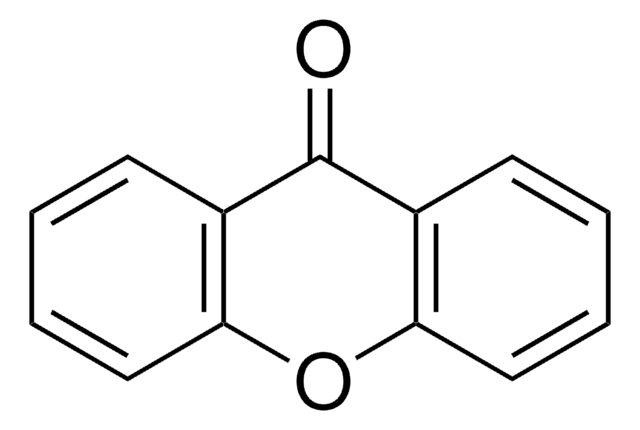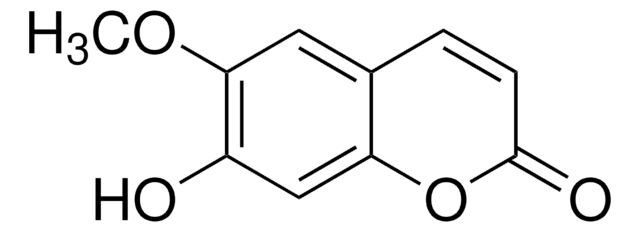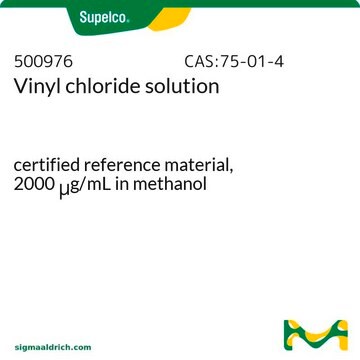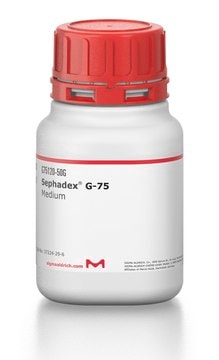252573
Xanthydrol
98%
Synonym(s):
9-Hydroxyxanthene, 9-Xanthenol
About This Item
Recommended Products
Assay
98%
form
powder
mp
127-128 °C (lit.)
solubility
methanol: soluble 50 mg/mL, slightly hazy
storage temp.
2-8°C
SMILES string
OC1c2ccccc2Oc3ccccc13
InChI
1S/C13H10O2/c14-13-9-5-1-3-7-11(9)15-12-8-4-2-6-10(12)13/h1-8,13-14H
InChI key
JFRMYMMIJXLMBB-UHFFFAOYSA-N
Looking for similar products? Visit Product Comparison Guide
General description
Application
- acrylamide in surface and drinking water by GC-MS method
- urea by HPLC with fluorescence detection
Storage Class Code
11 - Combustible Solids
WGK
WGK 3
Flash Point(F)
Not applicable
Flash Point(C)
Not applicable
Personal Protective Equipment
Certificates of Analysis (COA)
Search for Certificates of Analysis (COA) by entering the products Lot/Batch Number. Lot and Batch Numbers can be found on a product’s label following the words ‘Lot’ or ‘Batch’.
Already Own This Product?
Find documentation for the products that you have recently purchased in the Document Library.
Customers Also Viewed
Our team of scientists has experience in all areas of research including Life Science, Material Science, Chemical Synthesis, Chromatography, Analytical and many others.
Contact Technical Service












